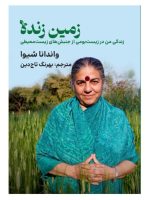
Willem Marius Floor is a Dutch historian, writer, and Iranologist. He was born in 1942 in Utrecht, the Netherlands. After finishing high school, he attended the University of Utrecht where he studied economics, non-Western sociology, and Islamic studies. He also studied Arabic and eventually became interested in Persian. He received his PhD from the University of Leiden in 1971. The title of his PhD dissertation was “The Guilds In Qajar Persia.” Ever since, he has been engaged in Iranian studies. Throughout this time, he has published extensively on the socio-economic history of Iran. As an independent scholar, Willem Floor has published numerous works of history as well as translations. Dr. Floor is also a winner of Farabi International Prize for Humanitarian Studies.
He started his professional career in 1968 at the Ministry of Development in the Netherlands. Between 1983-2002. Dr. Floor was employed by the World Bank as an energy specialist. For example, his report on a study of the difficulties involved in applying solar energy in developing countries, den Haag was published in terms of a book “Solar Energy.”[8] He was among those who 30 years ago drew attention to the problem of CO2 emission in his study, co-authored with Robert-Jan van der Plas, The Residential Sector and CO2 Emissions. Industry and Energy Department Paper Series, The World Bank, 1992.
More than anything, Dr. Floor is an Iranologist and is widely known for his numerous books on the country’s history and literature. When asked about Iran and Iranians, he mentions, “I don’t think of people, any people, in having best and worst characteristics. Having worked in more than 50 countries all over the world during my 35-year career, I have found that people, wherever they are, are not that much different. What they have in common that they all react to the incentives that they are exposed to, political, economic, religious, etc. For example, if I say that Iranians don’t plan very well, but are masters at improvisation, is that a best or worst characteristic? It all depends on the circumstances and I don’t think it is helpful to contribute to the proliferation of stereotypes of people. Just take them as they are and work with that and you will be surprised to learn that what is considered ‘best and worst’ was based on lack of understanding and empathy.”







